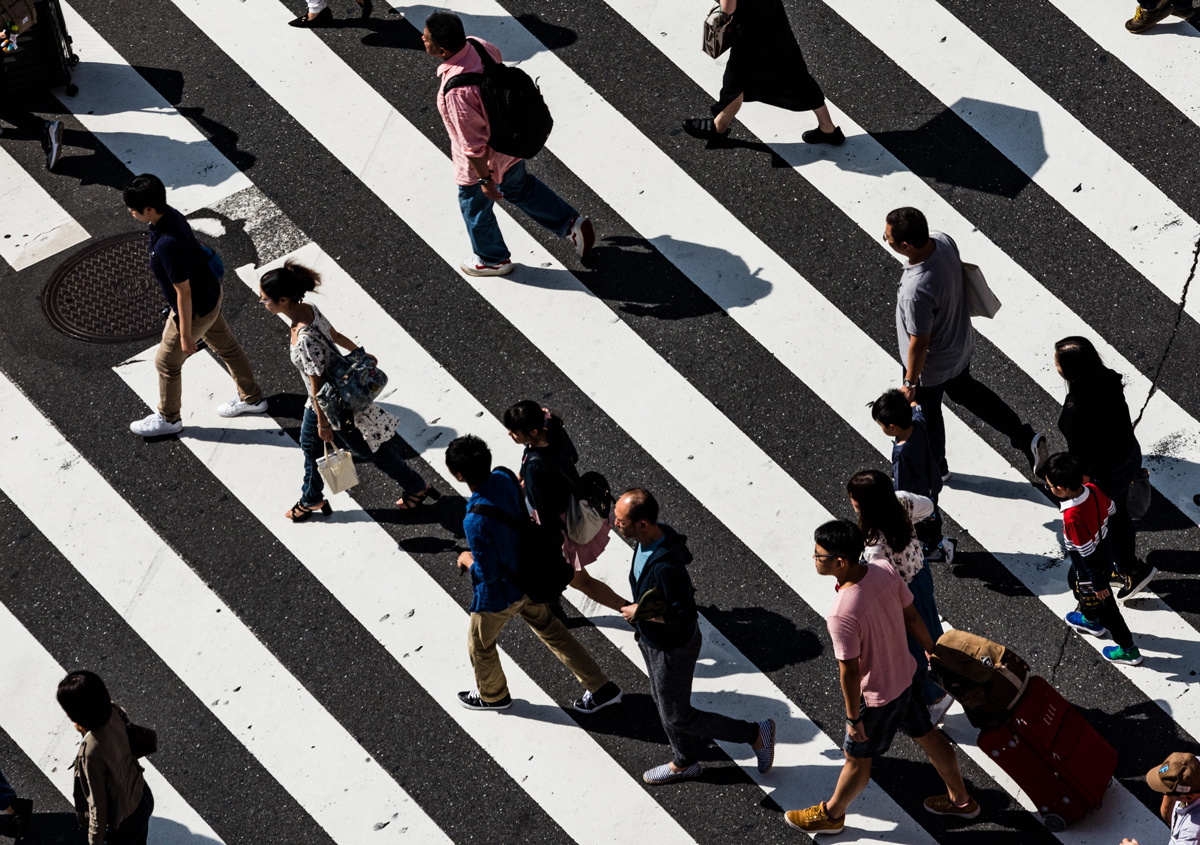Rethinking governance in the times of the COVID-19 pandemic

The enormity of the situation brought about by the COVID-19 pandemic invites – or rather forces – us to reflect on the nature and effectiveness of our systems of governance. And not just of health systems, but more broadly the governance of our very complex societies and their transnational flows.
I start with some definitions, as the term governance is itself broad and contested.
You say governance, I say…what?
Governance, as many development practitioners understand and apply the concept, is frequently used to refer to certain positive attributes that organisations and institutions (often public institutions) should incorporate. These attributes include abstract concepts such as:
- Transparency
- Accountability
- Control of corruption
- Efficiency
- Inclusiveness
- Rule of law
This manner of understanding governance, often also referred to as “good governance”, has strong normative connotations. It has been the subject of criticism by many who argue that development cooperation seeks to transport Western models of state institutions to contexts where they do not fit the local realities and customs. (To get an idea of this discussion see for example Good Governance, R.I.P by Merilee S. Grindle, Good Governance and Aid in Africa by Patrick McAuslan and How Good Governance Got a Bad Name by Kim Eric Bettcher.)
This is not the use of the term governance that I want to discuss. Rather, I want to bring our attention to the notion of governance as a more general analytical concept that refers to the rules (formal and informal) distributing roles, defining practices, setting boundaries, and shaping behaviours with the goal of attaining a collective outcome.
This definition suggests that effective governance is about setting rules and incentives such as enforceable orders, directives or recommendations. Through these, the behaviours of a substantial number of individuals in the group of interest are steered in a direction that is conducive to achieving collective goals.
Governance models are being put to the test
In our current situation with the ongoing COVID-19 pandemic, the central governance issue involves getting people to divert from their normal routines in the name of public health goals. In some cases, they are even asked to forego engaging in the activities that provide daily sustenance. A tall order to say the least.
This highlights the importance of assessing the strengths and weaknesses of the different models of governance which are being put to the test by leaders as they are confronted with extremely difficult choices to contain the spread of the coronavirus. On the one hand, there is the model of governance adopted by the Chinese government to deal with the outbreak. At the moment it appears to have succeeded at stopping the contagion, but it is clearly problematic from a human rights perspective. On the other hand, democratic governments in Europe and elsewhere are confronted with the enormous challenge of trying to control an emergency situation with all means possible while respecting democratic rights and freedoms.
What factors underpin the current challenges?
The underlying sources of the difficulties in braking the spread of the virus are varied, intertwined and complex. But if we are to learn out of this experience how to make governance more effective, we can and should take a step back to discern the different factors that are at play in hindering the containment of the pandemic.
For instance, it is a well-known fact that macro-level collective action problems quickly surface when promoting a public good. The proverbial free rider problem arises because individuals estimate they can still pursue their particular interests (go out, meet my friends) and enjoy the public good (contained virus spread) if everyone else is abiding by the collective rules (staying home, avoiding social contact).
However, we know that individuals can also display generosity towards others and join together to punish those who violate rules that promote the well-being of the wider group. This clearly indicates that social norms are also a factor that needs to be considered as we think about developing better governance approaches to confront crisis situations.
Harnessing social norms and behavioural insights to promote the public good
Societies where close social, physical contact (hugs and kisses to greet each other) are the norm will naturally require a greater conscious effort to enforce social distancing than other countries where social interactions involve less physical contact and where individualism is more prevalent. However, tight social links also are associated to high levels of social capital and trust, which are key in overcoming collective action problems.
Ongoing work on social norms and governance should delve deeper into these topics and suggest ways in which deeply rooted social practices can be harnessed in the pursuit of the public good. We should also think about the manner in which behavioural insights may reinforce behaviour changes desperately needed to address the crisis. Visibly salient environmental cues could help people remember the steps (simple as they may be) that they need to take to prevent contagion. Many wonderful examples of how simple changes in the landscape can promote better accountability and citizen empowerment have been collected by Dieter Zinnbauer in his ambient-accountability site and can provide inspiration on reshaping our environments to promote public health goals.
Moving governance beyond the state and towards empowering the people
The crisis, as tragic as it is, also opens immense opportunities. I believe that energies should be invested in governance programmes moving beyond the sphere of public institutions. I am talking about decisive and sustained public education and awareness-raising campaigns to ingrain the recognition that the existential threats we face are of a global nature. They require global, collective responses.
Whether a pandemic or the effects of global warming, the crises that are surely to come will continue to underscore our interdependence and interconnectedness. The current crisis has made it clear how vulnerable we are to what happens on the other side of the planet. Thus, we should start planning to help people be prepared to react and change behaviours in pursuit of the global common good – that common good to which all our individual fates are tied.
Education will inevitably be a big part of that, highlighting the fact that contributing towards the welfare of others is ultimately a contribution towards our own individual well-being. This includes raising awareness about the right to hold accountable those who govern and speak in our names.
COVID-19 reveals the weakness of populism and isolationism…
The coronavirus is egalitarian and does not give in to false claims. It attacks everyone regardless of economic class, political affiliation and race. It exposes demagoguery. The current crisis is therefore clearly demonstrating the weaknesses of those who try to solve global problems by reverting to isolationist strategies.
It is the right time to emphasise the need to demand decisions from our leaders that are based on science and evidence and not on ideological or populist claims.
…and teaches us the value of public goods
Last, but certainly not least, it is indispensable to raise awareness about the value of public goods. I have spent 10 years conducting research on the drivers of corruption, interrogating why corruption seems to be so resilient, and collecting data on popular beliefs and attitudes towards corruption from many different sociocultural contexts. Based on this experience, I am convinced that corruption partly results from a lack of appreciation for the common good.
There is considerable evidence that in those countries most affected by corruption, there is a notable disregard for the value of the public sphere. “The public space is not important because it belongs to nobody” is a belief I have seen expressed by individuals in Africa, Latin America and Asia alike. For the same reason, people justify stealing public funds because in the end they are not perceived to belong to anyone in particular.
Today, as we are caught in the midst of this pandemic, we have a golden opportunity to vigorously push for a global agenda that raises consciousness about protecting public goods.
The coronavirus pandemic is here and its effects on our lives are still unimaginable. It has opened our eyes to the limitations we have to generate effective governance in the face of a public health crisis.
We should clearly invest significant efforts to research and test approaches to protect public health, and that should be of course a high priority. But we should also do much more to prepare for the global, collective challenges that await us in the future.
Learn more
- Explore the anti-corruption research and insights of Claudia Baez Camargo and her team at the Basel Institute.
- Learn more about informal governance.
Photo by Ryoji Iwata on Unsplash.



